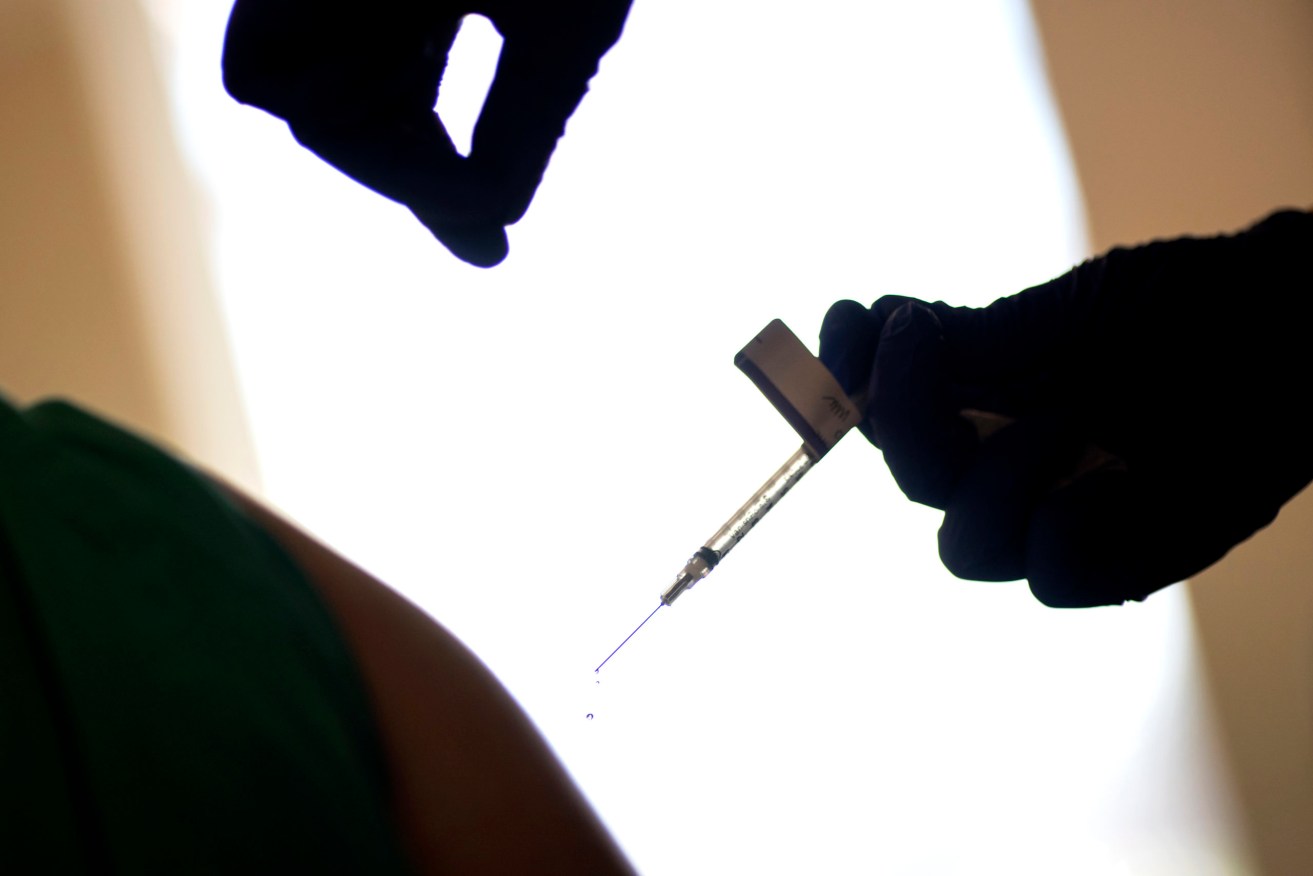State disability support staff jab rollout falls behind
The State Government has vaccinated only 170 disability support workers in state-run facilities as of May 20, despite setting a goal in March to vaccinate 900 staff within three weeks.


(AP Photo/David Goldman)
People with disabilities living in residential care and their support workers were prioritised in first phase of the national vaccine rollout which began on February 22.
All people with disabilities living in State Government residential care, roughly 520 people, have been offered a COVID-19 vaccine as of yesterday, with 421 people taking up the offer to receive a jab according to the Department of Human Services (DHS).
But the DHS also told InDaily that the Department has so far only provided 170 disability accommodation support workers with a vaccine.
That’s despite Human Services Minister Michelle Lensink announcing on March 10 that 900 frontline staff working in State Government-run disability accommodation would be vaccinated by March 31.
A DHS spokesperson said the rollout “began successfully” in March but attributed the slow pace of vaccines to health advice handed down on April 8 recommending against the use of the AstraZeneca vaccine for under 50s due to rare but potentially fatal blood clots.
“Many staff are aged under 50 years and were therefore not able to receive the AstraZeneca vaccine as planned,” the spokesperson said.
There are more than 1600 disability accommodation support staff working in the DHS according to the 2020-21 budget papers, with the current number of vaccinated disability support workers representing around 10 per cent of employees.
The DHS said it is “taking steps” to ensure staff can access an appropriate COVID-19 vaccine, including running an internal vaccine promotional campaign and supporting workers to access vaccination in paid work time.
“[We are] working closely with SA Health to offer disability staff the Pfizer vaccine and many disability workers have already received or booked to receive a vaccination through SA Health,” a spokesperson said.
More than 250,000 people in South Australia have received at least one dose of a COVID-19 vaccine, with the rollout now in its third phase.
The office of Human Services Minister Michelle Lensink declined to expand on the DHS’s comments.
Shadow Human Services Minister Nat Cook said the current pace of the State Government’s disability worker vaccine rollout was “appalling” and “none of the excuses they are giving should warrant a six-week delay in the program”.
“The people with specific higher risk to contracting COVID, and those caring for them, simply must be a priority,” Cook said.
“If people in hospitals have been prioritised [and] frontline emergency workers had been prioritised, why would you not put people supporting the people with high levels of vulnerability in group homes at the top of the list as well?”
“If there is a change in direction about what vaccine to give what age group, I accept that, but that’s not [the Department’s] entire workforce.”
The figures come after it was revealed on Monday that just six people with disabilities and four support workers in residential disability care in South Australia had been vaccinated as part of the federal government’s in-reach program as of May 6.
At that point in time, more than 2.5 million Australians had received a COVID jab.
The numbers – labelled an “abject failure” by the counsel assisting the disability royal commission – did not include people with disabilities or support workers who had been vaccinated at state-run clinics or by their GP.
AnglicareSA, which manages 25 supported homes with 93 residents, says no staff or resident at their facilities has been vaccinated as part of the federal government in-reach program yet.
Executive General Manager Disability Services Ian Byrne said some AnglicareSA staff and two residents have had their first dose at a state-run clinic or GP, with the organisation expecting the federal government’s contractors to begin vaccinations for their facilities by the end of the month.
Byrne said he was concerned by the pace of the rollout, and added that “we want those people we support to have access to clear and reliable information about the vaccine options and availability”.
“While it is, and as we understand will remain, a voluntary decision to be vaccinated, any uncertainty and ambiguity about vaccine availability and the process for receiving a vaccine only elevates the level of anxiety experienced by those in vulnerable circumstances,” Byrne said.
“We commenced our preparedness for customers to receive vaccines in February this year and remain ready to support our customers in their choice.”
The DHS noted there were a variety of reasons that not all people with disabilities in state-run accommodation had been vaccinated, including some not being healthy enough to receive the vaccine, their legal guardian not providing consent, or they require the jab to be administered in hospital.




